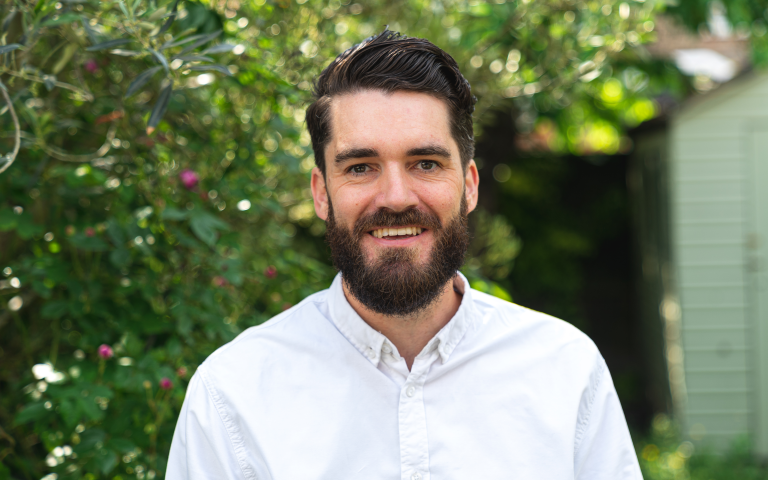Joseph Hayes is a UKRI Future Leaders Fellow at the UCL Division of Psychiatry and an honorary consultant psychiatrist in Camden and Islington NHS Mental Health Trust.

What attracted you to research psychiatric epidemiology and can you explain what this involves?
During my training in psychiatry, I was struck by how little we knew about the long-term effects of mental health problems and the effects of treatments for these problems. I realised that I wanted to produce research that could answer the questions patients were asking me in the clinic.
Psychiatric epidemiology is the study of the occurrence and distribution of mental illness across people, space and time and the investigation of the causes and consequences of these disorders in order to develop more effective prevention and intervention strategies.
How can big data help us better understand mental health?
The evolution of large data sets has meant that we are able to better understand rare complex multifactorial conditions and develop more detailed phenotypes for these conditions.
This means we can generate new knowledge from existing data such as electronic health records or registers that are representative of the whole population.
Many questions related to mental health problems cannot be answered by randomised controlled trials, but applying causal inference techniques to big data can further our understand of these conditions.
What do you think are some of the main challenges in understanding and treating mental health disorders? How can research overcome these challenges?
Some of the main challenges are related to the complexity of mental health disorders, and our subjective measures of symptoms.
This has made it hard to describe the causes of mental illness and the potential trajectories someone’s life will take after receiving a diagnosis. As we collect more data, we will be able to focus on clusters of symptoms in a more precise way, and better quantify the experience of individuals. This will mean we can better understand causes, target treatments and determine prognosis.
You were awarded a 2021 UKRI Future Leaders Fellowship to focus on better outcomes for people with severe mental illness, using electronic health records from around the world. Can you tell us about this project?
This project has two main aims that will hopefully impact positively on people with severe mental illness. The first is to develop prediction models for drug treatment selection. Currently medication treatment guidelines include a wide range of possible interventions, with no clear patient orientated way of choosing between them. We are seeing if it is possible to stratify individuals to optimise their chance of responding to treatment and minimise the risk of adverse effects.
The second project builds on our earlier work investigating the potential for repurposed drugs. There are potentially drugs, commonly used for other conditions, which can positively impact on mental illness symptoms.
Can you tell us about your work as an Honorary Public Health Consultant at the Office for Health Improvement and Disparities, Department of Health and Social Care?
Since 2019, I have worked as an Honorary Academic Clinical Consultant for the Office of Health Improvement and Disparities (OHID - formally Public Health England). I worked on an Expert Reference Group which derived the OHID severe mental illness premature mortality indicators, launched in December 2020.
Development of this indicator set allows progress monitoring of a priority action in the "NHS Five Year Forward View for Mental Health" (reduction in mortality in people with severe mental illness). It would not be possible to measure impact of interventions without these indicators. I have also worked on steering groups to derive indicators for prevalence of severe mental illness and personality disorder for NHS Digital, and the excessive effects of COVID-19 on mortality in people with mental health problems.
What working achievement are you most proud of?
In 2019 I was selected to speak at an event held by the World Economic Forum. After this I was asked to join their Global Future Council for Mental Health. This meant I had the ear of important people (including the Directors of the National Institute of Mental Health, Mental Health at Wellcome and the World Health Organisation).
This gave me the opportunity to shape policy and understand priority setting at a global level. This has been invaluable in progressing my work aimed at narrowing health inequalities for people with severe mental illness.
Why would you recommend UCL as a place to study psychiatric epidemiology?
The field will only grow as more data (wearables, linkages between data sets) and new methods (machine learning, artificial intelligence) evolve. Mental health research has, for decades, lagged behind the rest of medicine because of lack of funding. But now there is real interest from funders and the public. There is nowhere in the UK doing more exciting work in this area, which is really strengthened by UCLs cross-disciplinary and interdisciplinary approach to research.
 Close
Close

